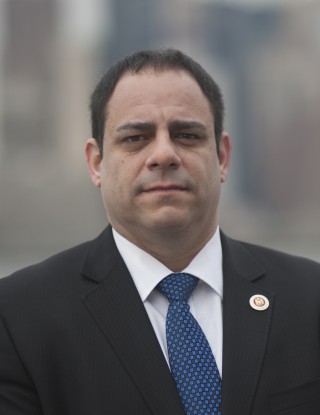
Costa Constantinides
July 23, 2015 By Jackie Strawbridge
Following an inquiry from a local elected official, the City has clarified that New Yorkers who choose to donate organs will not risk their incomes in the process.
Earlier this month, Councilman Costa Constantinides sent an inquiry to the Department of Consumer Affairs regarding organ donation and the City’s paid sick leave law.
The Earned Sick Time Act – the first bill signed into law by Mayor Bill de Blasio, in March 2014 – entitles workers at businesses with five or more employees to 40 hours of paid sick leave per year. The Department of Consumer Affairs enforces the law.
According to the Councilman, the statute does not explicitly delineate organ donation as a covered activity. Therefore, he asked the DCA to explain its interpretation of the law, and whether it considers organ donors to be protected by paid sick leave for their surgeries and recovery.
New York State’s rate of registered organ donors is the second lowest in the country at 20 percent, according to a 2014 report from Excellus BlueCross BlueShield.
Meanwhile, more than 10,000 people are waiting for organ transplants in the greater New York area, according to LiveOnNY, the federally designated organ procurement organization for this region.
“It is evident that more needs to be done to remove any barriers that might be in place that prevent people from becoming living organ donors,” the Councilman wrote in his inquiry.
In response, the DCA sent the Councilman a letter clarifying that organ donations are covered by paid sick leave.
The agency also updated its website to reflect this clarification.
“I am proud that anyone who makes the sacrifice of organ donation will no longer have to choose between their job and giving life to someone in need,” Constantinides said in a statement.
“DCA is proud to enforce a paid sick leave law that, by allowing for the use of sick time for organ donation surgery, might encourage New Yorkers to consider donating organs to those in need,” Commissioner Julie Menin said in a statement.
Constantinides has also introduced legislation that would highlight organ donor registration as part of the voter registration process at State agencies.

